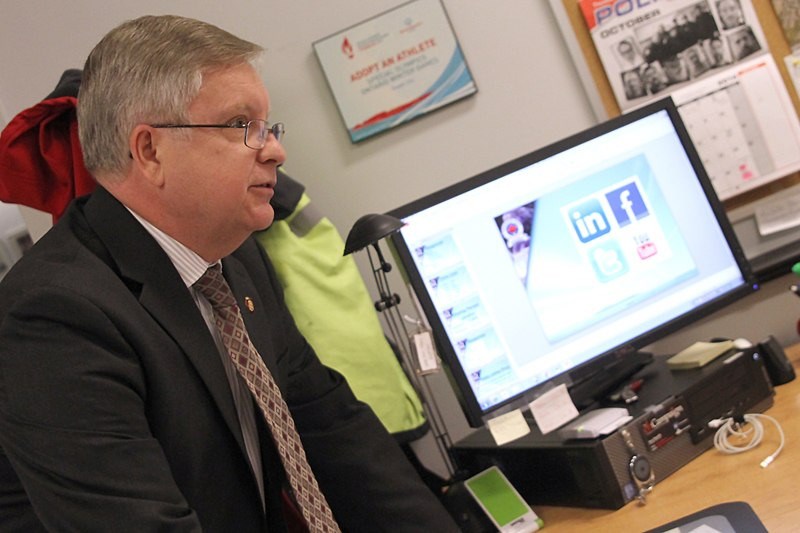THUNDER BAY -- Social media has changed the way Thunder Bay Police conduct business.
At times Twitter and Facebook have helped police spread the word about missing people or suspects in the latest convenience store robbery.
But when emergency situations strike, police are finding instantaneous information comes with its own set of pitfalls, not the least of which is often a slew of misinformation, twisted facts and even officer and public endangerment.
Then there’s the all-too-often rush to publish names of victims, often before next of kin have been notified their loved ones have died.
Police spokesman Chris Adams says while he fully backs freedom of speech, the public has to understand investigations move at a certain pace for a reason.
First and foremost is public safety.
“Tactical information that gets put out on social media can be very dangerous,” Adams says, giving an example of police surrounding a house with a suspect, possibly with hostages, barricaded inside.
“By taking pictures and posting it onto social media themselves they very often are giving information out that really should held back for that incident. It could give a tactical advantage to a criminal and that is very serious. That could cause injury or death.’
At times over-zealous members of the public, armed with smart phones, can even hinder investigations on their ground, in their rush and exhilaration to capture a crime or its aftermath in real time.
There’s also the danger of not knowing all the facts, which Adams says is not only reckless, but can have a legal backlash.
“When you post something on a website, whether it’s Facebook, Twitter or a blog site, you’re putting yourself out there as the source,” he says.
Naming a suspect who isn’t ultimately charged could lead to a lawsuit, he said. Many people aren’t aware of that.
“If that information is incorrect or is causing harm to someone’s reputation it can actually become a very serious civil matter where you can be sued. It can get worse than that. If you’re putting information out, that can hurt a victim of a crime or the family of the victim,” he says.
Const. Julie Tilbury sys the anonymity of the Internet and a change in people’s attitudes has only caused the problem to grow.
For every Ferguson, Mo., where Michael Brown was shot and killed by police and protesters took to social media to denounce the perceived injustice, leading to protests in the streets, there’s a case like a recent sudden death on Thunder Bay’s north side.
Police taped off a wooded area alongside one of the city’s busiest streets. Almost immediately online speculation began that it was yet another murder. Even after the death was ruled accidental, social media users insisted it was a police cover-up and the death was a result of foul play.
A friend of a friend had told them what was what.
Police hold back information for a variety of reasons. Often it’s germane to securing a conviction. But in this case an overly-sensitive public, in a year with a record number of homicides, felt it had to weigh in.
Only they were wrong. And it wasn’t the first time. Withholding details won’t sit well with some, but that’s too bad, Tilbury says.
“In this day and age people think they have the expectation to getting everybody’s private information very quickly, and that’s not the case.”
That’s not to say police don’t see the benefits of social media. Tilbury, who runs TBPS’s social media sites, posts most releases on Facebook and Twitter, and says they get thousands of shares when someone goes missing.
Tilbury fears too much information about a case, in a world where truth and misinformation spread like wildfire, could lead to problems in court.
“I think it’s going to be a challenge down the road to get a jury that can be fair and balanced,” she said.
Knowing they’ll never close Pandora’s Box – and Adams says police aren’t interested in censorship – they just urge the public to use caution.
“Opinions are good. Debate is excellent. But respect should always be there and if we don’t have that, then what are we as a society?”
